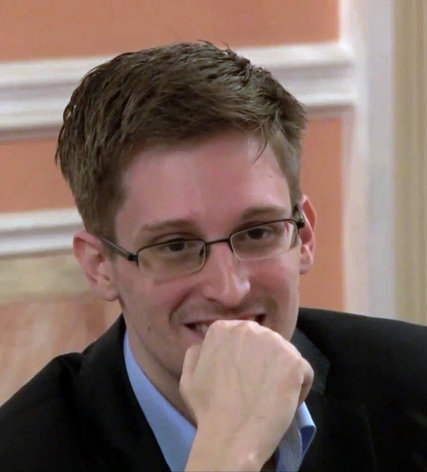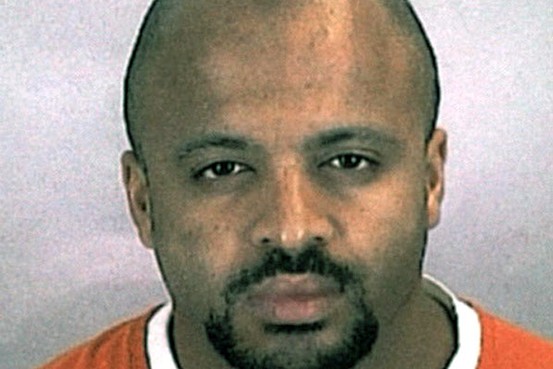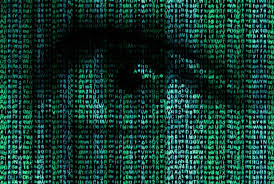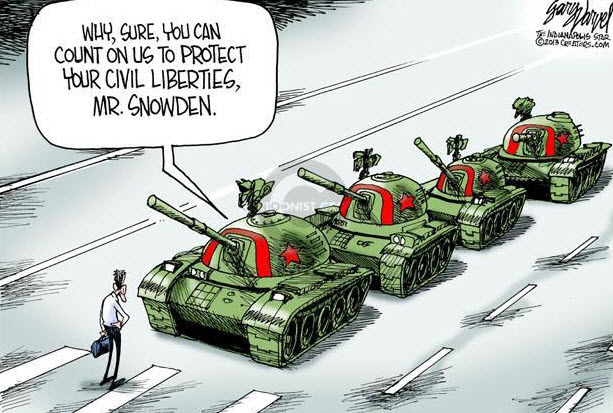security
Dec 16 2015
Immediately after the attack at a Planned Parenthood clinic in Colorado Springs, in which three people were killed and nine wounded with a semi-automatic rifle,
out came the pleas from the conservative wing for Congress to pass mental health reform as the cure.
Five days later 14 died and 21 were injured in San Bernardino, California, when a radicalized Islamist couple sprayed a community center with two .223-caliber 
assault rifles and two 9-millimeter semi-automatic pistols. Mental health reform was not the ready answer this time, so the cause shifted to President Obama not doing enough to keep America safe.
When Obama and others on the left brought up the failure to pass gun control laws, they were accused of politicizing a tragic event. A Wall Street Journal editorial called it "intellectual poverty" to bring up the gun issue. In the same sentence a call for "shaking up federal mental-health policy" that "GOP leaders should move on" was somehow not politicizing.
Claims that the Colorado killer was influenced by the campaign against Planned Parenthood was denounced as phony "rhetoric" by those on the right. That the shooter was heard by a senior law enforcement official to say "no more baby parts" somehow was unrelated to the hidden camera videos on the Internet where we heard a Planned Parenthood factotum talk about shippping fetal tissue.
mayhem
Two months ago, a man with a history of mental illness gunned down nine people at Umpqua Community College. In August, a former employee with a grievance shot and killed, on the air, a reporter and a cameraman at a Virginia television station and used a cell phone strapped to his Glock 19 to make a video of their deaths for YouTube. In July, another man with a record of mental problems killed two and wounded nine in a Lafayette, Louisiana, movie theater. In June, a 21-year-old used a loophole in the federal background-check system to acquire the weapons he used to kill nine parishioners in a black church in Charleston, South Carolina.
What all the killings have in common is guns. Without them, the mentally ill, the racist, the Islamic terrorist, would be in something of a quandary trying to figure out how to go about killing people en masse, and might well forego the attempt if there were no semi- or fully-automatic weapons to make killing so easy. Guns are the great enabler. That is incontrovertible.
Making mental health the remedy, as did House Speaker Paul Ryan after the Colorado shooting, is doing the business of the National Rifle Association because that is the NRA's standard deflection away from guns whenever there is an "incident". That fanciful solution would have us embark on what would be a long, slowly progressing program at best, in the hope that everyone's psychosis will be cured or that we will at least identify and head off mass killers, which of course is as likely as most Utopian schemes.
The other NRA solution is more guns. Its executive vice president, Wayne LaPierre,
declared after the school shootings in Newtown, Connecticut, that killed 20 children and six educators in 2012, “The only thing that stops a bad guy with a gun is a good guy with a gun.” That notion lives on. As authorities probed for the facts of the killings in the San Bernardino community center, Fox News' way right malcontent Andrea Tantaros quoted a doctor saying, "'Those 14 didn't have a chance', and I thought, you know what, they could have had a chance ... if they would have been armed." Obama's incredulous reaction was to say, there is “a gun for roughly every man, woman and child in America. So how can [anyone] with a straight face make the argument that more guns will make us safer?”
firearm chat
Four days after San Bernardino, the President gave a rare address to the nation from the Oval Office. Part of it outlined a U.S. strategy that continues to avoid sending troops:
"We should not be drawn once more into a long and costly ground war in Iraq or Syria. That’s what groups like ISIL want…They also know that if we occupy foreign lands, they can maintain insurgencies for years, killing thousands of our troops, draining our resources, and using our presence to draw new recruits… The strategy that we are using now — airstrikes, Special Forces, and working with local forces who are fighting to regain control of their own country — that is how we’ll achieve a more sustainable victory. And it won’t require us sending a new generation of Americans overseas to fight and die for another decade on foreign soil."
The commentariat's critique was, once again, that there is no strategy, that nothing has changed, as if the San Bernardino slaughter should have changed everything at the other end of the world. We are not aggressive enough against ISIS say 68% in a CNN/ORC poll. A majority now wants American troops to return to Iraq.
A columnist for The Washington Times named Charlie Hurt noted the next day that it was the Pearl Harbor anniversary and brought up Roosevelt's speech that called December 7th, 1941, "a date which will live infamy". "There was no comparison at all", wrote Hurt about Obama's talk.
Indeed there wasn't, and that this simpleton sought to draw a parallel showed his abysmal ignorance of history and offered an example of the right wing's twisting everything against Obama. Roosevelt spoke before a joint session of Congress the day after the Japanese had killed 2,400 Americans and sunk or damaged half the United States navy. San Bernardino was no Pearl Harbor.
Republicans had a new message to parrot. Pete Snyder trotted out the Roosevelt comparison on Fox News's "Happening Now", his credential being a failed candidate for Virginia's lieutenant governorship. And that night there was Michael Mukasey, saying the same on the PBS NewsHour:
"If FDR had gone before Congress and given the kind of speech that President Obama delivered last night, and told the American people that the folks who attacked us at Pearl Harbor were not representative of the peaceful Shinto religion and that we must be very careful not to discriminate…he would have been hooted off the podium".
Like Donald Trump proposing that Muslims be banned from entering the United States, Mukasey, a former attorney general of the United States under George W. Bush, was as good as saying that Obama should have come out against all Muslims.

losing our religion
Fed up with politicians and their ritualistic piety — “Praying for the victims, their families & the San Bernardino first responders,” tweeted Jeb Bush, "Praying" said Mike Huckabee, “My thoughts & prayers go out to those impacted”, wrote John Kasich — the New York Daily News ran one of its nothing held back front pages, which upset Peggy Noonan at The Wall Street Journal. "It is hard to pray, much harder than it is to punch out a series of tweets", she wrote. She thought Connecticut Senator Chris Murphy "sent out what struck me as the most manipulative message of recent political history":
"Your ‘thoughts’ should be about steps to take to stop this carnage. Your ‘prayers’ should be for forgiveness if you do nothing—again.”
Noonan hadn't yet heard what Trump was about to say. But she did redeem herself in her column with the second thought that
"What actually is irritating about politicians saying they’re sending thoughts and prayers is the suspicion you sometimes have that they’re not, actually, thinking or praying. Maybe someone could ask Jeb Bush if he really prayed."
That suspicion of hypocrisy squares with what happened in the Senate the very day after the California assault. Every one of her Republicans except Mark Kirk of Illinois voted against legislation to prevent people on the FBI's consolidated terrorist watch list from purchasing guns or explosives. A bill expanding background checks to gun buyers at gun shows and online also failed. All four senators running for president slipped back into Washington to vote against these measures. All four would-be presidents thus show themselves to be afraid of the NRA. As for policy, "Those same people who we don't allow to fly can go into a store in the United States and buy a firearm", says an exasperated Obama.
It's true. The Government Accountability Office and The Washington Post’s Wonkblog reported that more than 2,000 on the watch list of terrorism suspects did in fact buy guns in this country between 2004 and 2014. Democrats who have repeatedly tried to close that loophole have been defeated by the NRA and its captive Republicans who view desperate Syrian refugees as the ones to be feared.
demagoguing
"If you can't name your enemy, you'll never defeat your enemy, and the enemy is radical Islam", says Rand Paul. "What the President should do is clearly define what we are fighting. President Obama refuses to say the words 'radical Islamic terrorism'". Jeb Bush in a television campaign ad says, "Here's the truth you will not hear from our president, we are at war with radical Islamic terrorism". Donald Trump in D.C. suggesting there may be a link between events in San Bernardino and his failure to say "radical Islamic terrorism". Believe it.
The candidates probably got the three-little-words trope from Fox News, where it has been repeated continuously for months. One would think from this fetish that if Obama were only to say those words, the radical Islamist movement would collapse. In fact it shows how ill-equipped these candidates are to deal with the world. What what the President says is listened to around the world. Obama therefore chooses his words carefully in the sure knowledge that words that imply we are at war with all of Islam's 1.6 billion adherents around that world is not a good idea.
obama agonistes
Whereas George W. Bush supposedly kept America safe, will we now begin to hear that President Obama hasn't, that San Bernardino somehow proves that we are now more vulnerable than before? The instrument of that vulnerability, however, will primarily continue to be guns — pistols and assault rifles that can carry high-capacity magazines or can be modified to do so where illegal, as was the case in San Bernardino.
So what is Obama's record? Following Newtown, Obama implored Congress to pass at least a law requiring background checks for all gun purchases. When the Senate flagged in that effort after a few months, he brought together relatives and friends of victims of gun violence in the East Room of the White House and said, “Shame on us if we’ve forgotten. I haven’t forgotten those kids. Shame on us if we’ve forgotten.”
A strong bill actually received a majority of votes in the Senate but not enough to overcome a Republican filibuster. The NRA was at work relentlessly, with its threat to give low ratings to senators from states heavy with single-issue gun voters or to swamp their next re-election campaign with negative television ads. The bill got only a single Republican vote — once again Illinois' Mark Kirk. It would have stood no chance against the Republican majority in the House in any event, where the NRA and lobbyists for gun manufacturers held sway.
Thus did the Congress go completely against the American public which showed itself in favor of background checks in percentages never seen in polls: 87% in one, 92% in another.
Obama is still trying:
We also need to make it harder for people to buy powerful assault weapons like the ones that were used in San Bernardino. I know there are some who reject any gun safety measures. But the fact is that our intelligence and law enforcement agencies — no matter how effective they are — cannot identify every would-be mass shooter, whether that individual is motivated by ISIL or some other hateful ideology. What we can do — and must do — is make it harder for them to kill.
Republicans objected to his bringing up the subject as politicizing, "a cynical gesture exploiting another mass murder" in The Wall Street Journal's view.
gunning it
The American public response is the opposite. The FBI was deluged with having to background check the 185,345 who bought guns on this year's Black Friday - and that was before San Bernardino. It tops the record set after the Newtown massacre. Fox News reporter William Jeunesse says that a record 21 million guns, double the number in the year the President was elected, will be sold this year, "fueled by Obama". That's how the folks at Fox assign cause instead of attributing the gun mania to the conspiracy paranoids who have always thought — fueled by NRA advertising campaigns — that Obama is coming for their guns. Seven years on in his presidency nothing of the sort has happened and the United States continues to have the most relaxed gun laws in the developed world. In fact, laws have gone in the opposite direction, too. States allowing Americans to openly carry firearms now number 34, almost twice the number of 10 years ago.
now what?
That ISIS hailed the San Bernardino pair as "supporters" says that they were probably operating on their own, and for them to have been so effective without direct help and training by ISIS tells us that we have more to fear from so-called "lone wolves" that we thought. "Every instinct of this Administration, starting with the President, has been to minimize the terror risk on U.S. soil", says a Journal editorial. We can think of no instance to support that statement. (When has Obama or the administration ever said, "nothing to worry about"?) That confused editorial says that the ability of the San Bernardino pair to stockpile weapons while leading "seemingly average lives" indicates that "the U.S. may have a larger problem of homegrown terrorism than the government has wanted to admit". Really? The government has known about sleeper cells all along but kept them secret? "President Obama’s failure to respond forcefully enough", it goes on. Against what? The unknown?
Once again, that enormous metadata of telephone calls produced no advance awareness of the radicalized couple, which says that what's needed is a meta expansion of human intelligence by law enforcement and intelligence services. But Tom Joscelyn, senior editor of the Long War Journal, says "I think our law enforcement and intelligence officials are undermanned right now". The 9/11 Review Commission, which follows up on the recommendations of the original commission, concluded that the budget crisis that led to sequestration cutbacks have resulted in a hiring freeze at the FBI and other intelligence agencies which has "severly hindered" intelligence-gathering efforts. (One is left wondering just what those hundreds of thousands in the Department of Homeland Security do.)
But we're sure to hear Congress members blame the administration for security failures rather than acknowledge the consequences of its own budget austerity. After all, if these cells are inspired by ISIS, it must be Obama's fault for pulling all of our troops out of Iraq so that ISIS could rise. That lie is advanced reflexively by seemingly everyone on the right, as we documented in this piece last year.
So that's where we are, hurling blame about in a society that calls any attempt to block the dangerous from getting guns or blocks every attempt to get rid of the most dangerous guns an attack on our "second Amendment constitutional rights", the clause about a militia having been unconstitutionally crossed out. Nothing will be done. Nothing will change. Those on the watch list just got the word, if they already didn't know, that Congress has again allowed them to buy any gun and load it with however many rounds of ammo they choose. With the next shooting we will again ask why can't something be done, and do nothing again, so we had better realize that mass killings will continue to be an ever more frequent feature of daily life in the America that we have created.
Comment?
government exposed
Jun 16 2013
The blockbuster exposé by The Guardian and The Washington Post that the National Security Agency (NSA) is capturing phone and Internet traffic squares fully with what we reported three months ago, that the government intends to store all digital traces of everyone's activities and is building a huge secret facility in Utah to conduct these operations and store terabytes of our private lives. That story was an outgrowth of a Supreme Court ruling that government surveillance cannot be challenged. You can find it here.
The media is only now becoming aware of the Utah installation. Over the weekend after the sensational leaks The New York Times mentioned it and showed a photo. A search showed only a single prior mention in the paper, and that was in an op-ed. Bill O’Reilly repeatedly expressed astonishment over the “million-square-foot” facility, calling it “ultra serious”. By now it is finally general knowledge.
Greenwald: "We didn't tell terrorists anything they didn't know, we told American citizens".
Catch-22: In response to requests that the public be told about how the secretly obtained data has thwarted terrorist actions, Senator Dianne Feinstein (D-Ca), the chair of the Senate Intelligence Committee, laments, “Here’s the rub. The instances where this has …disrupted plots, prevented terrorist attacks, is [sic] all classified. That’s what’s so hard about this”. The government says 'sorry', it cannot account for whether its spying program is justified because, well, everything is secret. Next question?
John McCain (R-Az) was asked by CNN’s Candy Crowley whether the revelations of government spying bother him. He replied, “Not really. I do believe that if this were September 12, 2001, we might not be having the argument that we are having today”. John Oliver of the “Daily Show” reacted with, “Yeah, but that’s not really the point, is it? The standard of what constitutes the best decisions cannot be, what decision would we make on our most vulnerable and panicked…
Read More »










